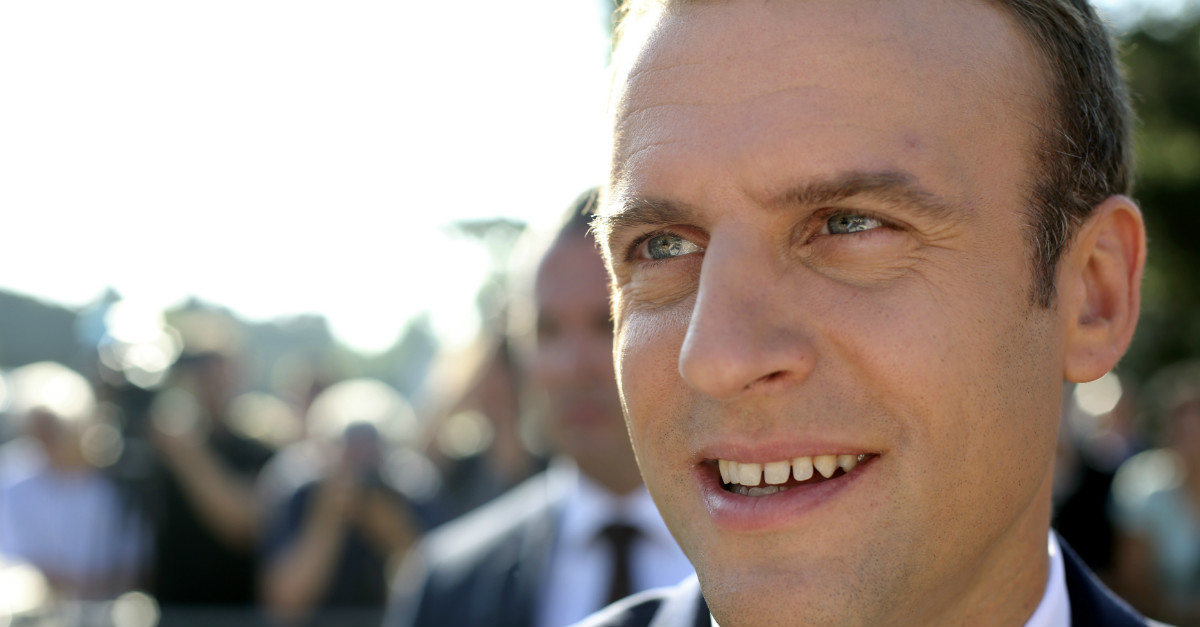On Sunday, French voters headed to the polls to vote in their second round of parliamentary elections. The first round saw large leads for La République En Marche, the brand new party of recently elected president Emmanuel Macron, which received 32.5 percent of the overall vote.
Videos by Rare
The result on Sunday cemented En Marche’s power: Macron’s party will control 360 seats in parliament (out of 577), obliterating the establishment Republican and Socialist parties, which got 130 and 46 seats respectively. The far-left party of former presidential candidate Jean-Luc Mélenchon won 28 seats in the National Assembly, making it the fourth largest bloc in the French legislature.
The night was particularly bitter for the National Front, the party of the far-right Marine Le Pen. Despite 2016 polls predicting she would win between 30 and 40 seats, the nationalist party only secured eight seats in parliament. Le Pen herself will enter the halls of parliament for the very first time in her political career. The National Front’s disarray is mostly due to infighting following her election loss to Macron. Her party leadership has been ideologically divided, and one key player—her niece Marion Maréchal-Le Pen, who had been one of the party’s two members of parliament until now—has left the movement completely.
A considerable number of parliament members from the Socialist Party and Republican Party struck deals with Macron’s movement in order to run unopposed in their electoral districts. As a result, many “opposition” parliamentarians will also support the government, which will be led by newly appointed Prime Minister Edouard Philippe.
RELATED: This German socialist thinks the European Union is the reason we haven’t had another world war
Only a few days ago, Macron expressed his fear of “ending up with too many [members of parliament],” leading French commentators to mock En Marche for its inexperienced candidates, many of whom had never held elected office in their lives. In fact, Macron really did completely overthrow the French left-right paradigm, but that now leaves him in control of a monstrous power structure.
The initial excitement for Macron is already seeing a down drift. Sunday’s vote was marked by the historically low turnout rate of 42 percent, which is below the expectations of the first round. However, Macron still has a large mandate, and that opens the door for some really bad policies.
The issue on which Macron will be most divisive is the European Union. Before his victory speech at the Louvre in Paris, he walked on stage to Beethoven’s “Ode to Joy.” In an interview with the French newspaper Libération, he said, “You cannot be timidly European,” and called for fiscal harmonization in the EU. His radically pro-EU stances are expected to further divide the country given that an increasing number of French have become at least mildly skeptical of the European Union.
Additionally, Macron wants to collectivize military forces and surveillance programs under European power. For instance, he wants to create an EU biometric identification card for all citizens. For the Eurozone, the body organizing the policy of the European common currency, Macron has called for a minister of finance and a completely new parliament to manage money issues, which would increase bureaucracy.
RELATED: How France’s anti-terrorism state of emergency became a civil liberties nightmare
Other questionable stances of Macron’s include the introduction of a “Buy European Act,” which would limit private-public partnerships to companies willing locate at least 50 percent of their production to Europe. This is deeply paradoxical, given the readiness of European leaders to oppose Donald Trump for similar protectionist policies. Macron also wants the government to further intervene in the agricultural sector and the housing market, intends to introduce a permanent state of emergency (effectively reducing civil rights) in France, and favors military interventionism in Syria with a UN mandate.
Macron now holds all the keys in the French Republic, and his lack of real opposition could become immensely problematic. With an absolute majority comes absolute responsibility. Emmanuel Macron, with his bad ideas and lack of experience, is the wrong person to wield it.



